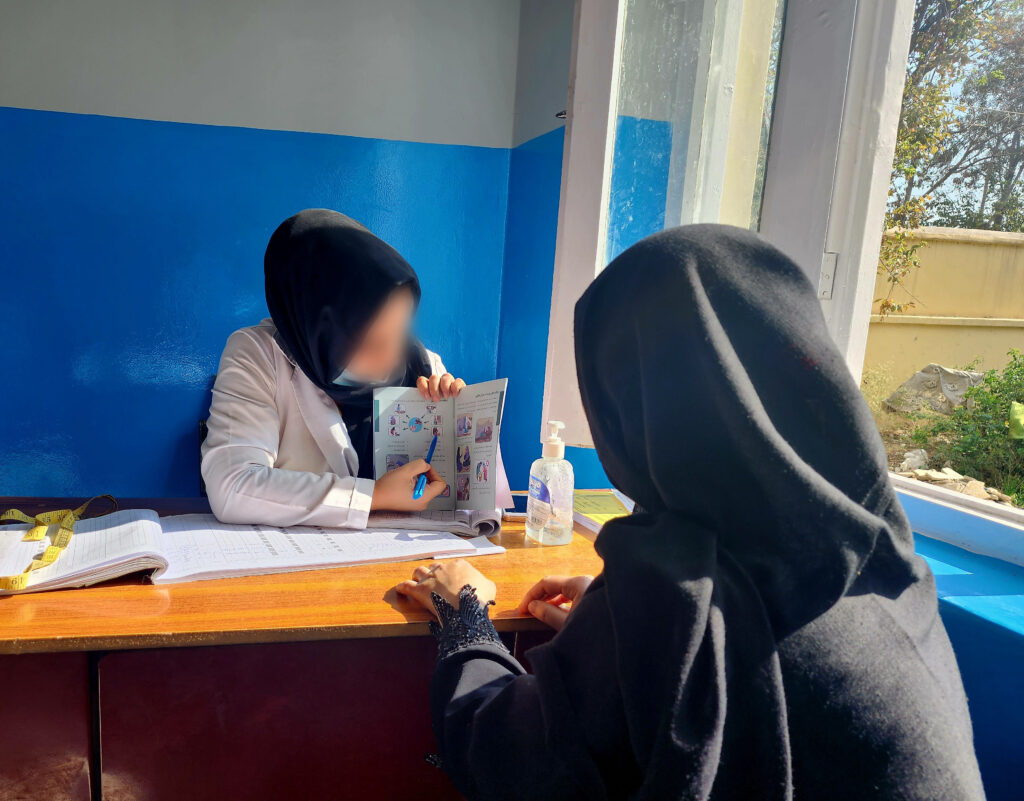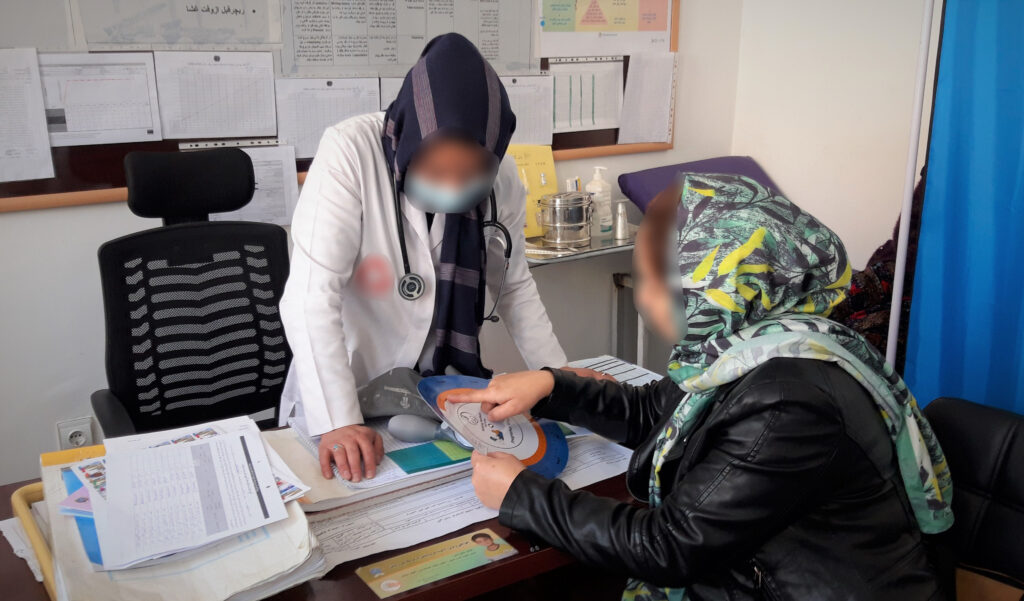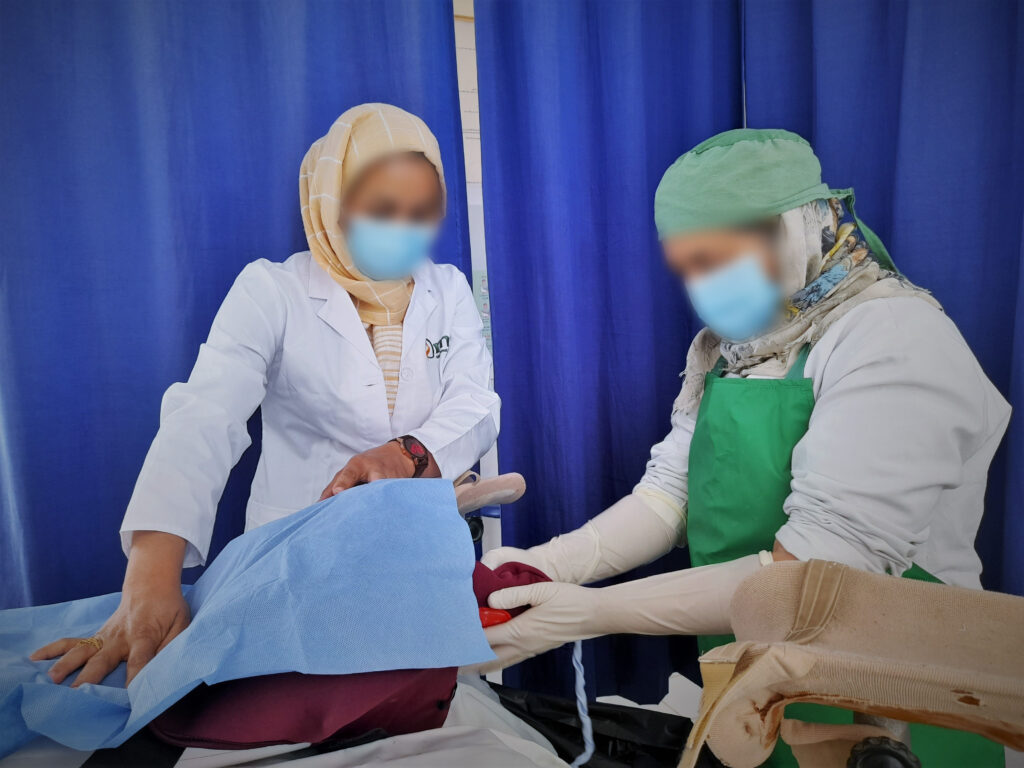Guardians on Duty: Meet the Midwives Making a Difference for Afghan Mothers
Guardians on Duty: Meet the Midwives Making a Difference for Afghan Mothers

Farzana,* an experienced midwife in Afghanistan’s Nangarhar Province, will never forget the day in mid-August 2021 when she was faced with an impossible choice. “I was on duty in our clinic, and a mother who was in labor came in,” she recalls. “I began the regular procedures to stabilize the patient and provide the care she required when, out of nowhere, sporadic shootings began outside our health facility. We were all terrified.”

The Taliban took control of Nangarhar that day, with the country’s capital city of Kabul to follow hours later. Farzana knew that everything was about to change—for her, for her community, and for her country—but one thing remained steadfast: her dedication and commitment to the women who need her. “I was unsure whether I should go home to my own family or stay with the mother who needed my help to deliver her baby safely. I opted to remain at the clinic. It was my duty as a midwife to stay with her.”
Even in the most remote areas, midwives like Farzana have long played a critical role as trusted providers of primary health care in Afghanistan. Building on more than four decades of experience in the country, Management Sciences for Health (MSH) works closely with the midwives as key partners in upholding quality of care for women and newborns.
Through the USAID-funded Assistance for Families and Indigent Afghans to Thrive (AFIAT) project, MSH is training midwives on an innovative group-based model of antenatal and postnatal care to help them empower and equip mothers with accurate information, quality health services, and safe spaces to discuss challenges and share experiences.
“The model focuses on supporting mothers as they learn and share in small group settings, fostering a sense of community and sisterhood during a particularly challenging time for women in Afghanistan. During the sessions, mothers learn about many topics to keep them healthy during pregnancy and postpartum. The midwife also helps them conduct self-assessments, screens them for antenatal depression, and gives each an individual checkup to help connect them to the right care at the right time.”
— Samrina, Senior Midwifery Advisor, AFIAT
For many AFIAT staff members, the work is personal. “Midwives really do provide lifesaving support for mothers, and my job now is to help them build on their skills and learn these new approaches,” shares Roqia, a program officer on AFIAT’s midwifery team. A midwife by profession since 2006, she cites her own family’s heartbreaking experience as what drives her to help fellow midwives deliver the highest quality of care possible for their patients. “My family lived in an isolated, remote area of the country, so my mother had to give birth to my baby brother at home. Unfortunately, the baby died shortly after birth, and my mother passed from postpartum complications several months later. It was such a sorrowful time for my family,” she says, noting that things might have turned out differently had her family had the support and guidance of a midwife.
“For my mother and brother, there was no nearby health facility; there was no ambulance. If a midwife had been there, they both would have likely survived. Every day when I go to work, I remember that pain that my family felt and want to prevent any other family from suffering the same. That’s why I became a midwife.”
— Roqia, Program Officer, AFIAT
Now, as a key member of AFIAT’s midwifery team, Roqia helps train midwives across four provinces on the group-based model so they can implement the approach in their own clinics. “Every time I visit a health facility and talk to women who are part of these groups, I can see how it impacts them and how important this intervention is for women in Afghanistan,” she says.
Women participating in the group sessions have been very receptive, with many providing feedback that the topics covered have helped them take better care of themselves and their babies and feel more confident to make decisions about their own health. “Previously, I did not breastfeed my babies for up to three days after birth based on cultural beliefs and customs,” shares Meriam,* a mother from Kabul who participated in group antenatal care (ANC) sessions during her most recent pregnancy. “After the group sessions, I understood the importance of immediate and continued breastfeeding for a newborn, so I decided to start breastfeeding within the first hour after giving birth. I am glad that I knew how to nourish my baby this way,” she says.
“[Before,] I had no information about pregnancy and childbirth, and I could never ask my family about it. During the group sessions, I was able to actively participate in discussions and raise my concerns. Now, I feel more self-confident, capable, and knowledgeable than before, and I am very happy and satisfied with the care provided to me.”
— Tasneem,* a first-time mother and group ANC participant from Kandahar Province
Since August 2021, the support of midwives has become even more critical—and even more challenging. “Now, midwives are required to attend their jobs in health facilities with their mahram, which is a male family member who serves as their guardian,” explains Roqia. “Her mahram is expected to spend the entire day there, which is not always possible. Some midwives have had to resign in various provinces due to a lack of a mahram or because their mahram has a full-time job and cannot accompany them.”
Despite the challenges that come with these new realities on the ground, the work continues. In March, AFIAT expanded the activity to two new provinces—Bamyan and Nangarhar—to reach more women through this group-based model of care. Farzana is among the midwives who were trained by AFIAT and are now spearheading the implementation of this model in the two provinces. “We already had education to provide these health services, but these trainings are so important to continue building our skills,” she says.

So far, AFIAT-trained midwives like Farzana have enrolled 62 women in six health facilities in Bamyan and Nangarhar, and the support has made a big difference in the health of these expectant mothers. After three ANC sessions, 33% of the women were diagnosed with moderate acute malnutrition and referred to a nutrition counselor, while nearly 44% were diagnosed with anemia and received iron supplements. Additionally, 43% were diagnosed with antenatal depression and referred to a psychosocial counselor for support. “As a midwife, I am proud that I am here to help mothers and their babies survive and thrive,” Farzana says.
In the four provinces directly supported by AFIAT, nearly 200 women across 12 health facilities have participated in the group-based sessions. The project is also supporting the Afghanistan Midwives Association to implement the group-based model in six health facilities in three additional provinces. Ultimately, it is the shared dedication and commitment of Afghan midwives that underpin these lifesaving interventions.
“Midwives are truly at the core of quality of care,” says Samrina. “We cannot stop our work; we cannot take a break. These efforts must continue to ensure that all pregnant women, mothers, and their babies in Afghanistan receive the high-quality care that they deserve.”
*Name changed for privacy.